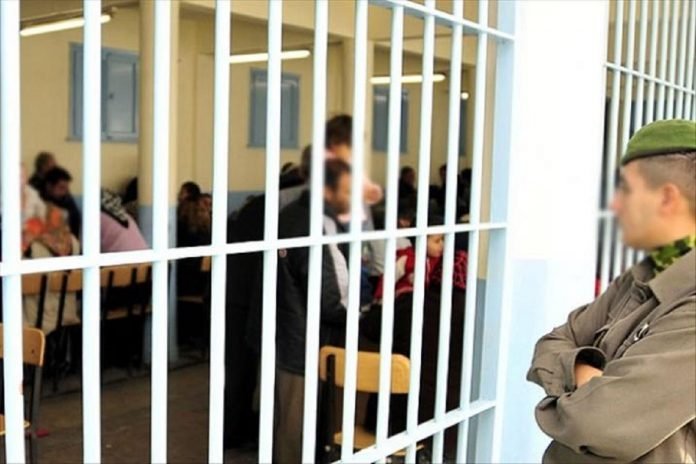Turkish Justice Minister Abdülhamit Gül has said a ban on contact visitation in prisons that went into force in March 2020 due to the coronavirus pandemic will soon be lifted, Turkish Minute reported on Thursday.
Responding to questions from lawmakers at the parliamentary Planning and Budget Committee, Gül announced that the ban on contact visitation in Turkish prisons would be lifted on December 1.
Families of inmates have been voicing protests as contact visitation in Turkish prisons has not been allowed since the beginning of the pandemic despite the elimination of restrictions for such large gatherings as weddings and concerts.
Even if the inmates have been vaccinated, they can only see their family members and lawyers behind glass panels during non-contact visits.
In contact visitation, the inmate and visitor are permitted in the same area without a barrier between them under close supervision.
Gül said the ban had been introduced to protect the health of inmates and prison staff in line with recommendations from a scientific board that has been assisting the Health Ministry in the fight against the coronavirus.
“We have conducted a study to find out if we can re-introduce contact visitation in coordination with the Health Ministry’s scientific board. Contact visitation will start on Wednesday, December 1, after a long hiatus, in line with its recommendations,” he said.
The rapidly spreading COVID-19 has presented great concerns in Turkey’s prisons, which were already notorious for human rights abuses, overcrowding and unsanitary conditions before the pandemic. The purge of thousands of dissidents in the aftermath of a coup attempt in July 2016 has filled Turkey’s prisons, which today are overcrowded with tens of thousands of political prisoners.
The Turkish parliament passed an early parole law in April 2020 aimed at reducing the inmate population of the country’s overcrowded prisons due to the coronavirus pandemic. Yet, the legislation excluded political prisoners, including opposition politicians, journalists, lawyers, academics and human rights defenders convicted under the country’s controversial counterterrorism laws. The law prompted calls from the UN, the EU and rights groups for the non-discriminatory reduction of prison populations.
The Ankara Bar Association said in a statement earlier this month that the ban was a serious human rights violation.
According to the Ankara Bar, the ban violates not only the right to respect for private and family life but also the right to a fair trial and the right to a defense since the prisoners have been unable to meet with their lawyers under proper conditions. Lawyers cannot share confidential documents and information with their clients under these conditions, the statement said.
According to Mehmet Durakoğlu, chairperson of the İstanbul Bar Association, the pandemic is being abused by the government as a tool to legitimize rights restrictions and is especially true for prisons. “Precautions can be taken to save lives, but they should be done within the limits of the law,” Durakoğlu said.















